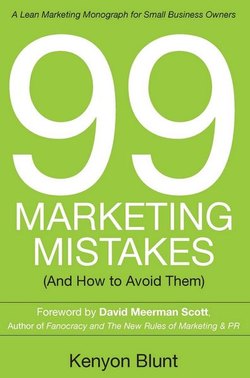Читать книгу 99 Marketing Mistakes - Kenyon Blunt - Страница 25
На сайте Литреса книга снята с продажи.
ОглавлениеMistake #19
Not Using Event Marketing
If home repairs challenge you, chances are you’ve attended a class at Home Depot or Lowes. Many of their classes book to capacity, and customers love them. You can do this too. Many small business owners think hosting events are old-school marketing. I’m telling you they still work and, maybe, they’re working even better.
Whether you’re a traditional brick-and-mortar store or an online business, your brand comprises many things. Human interaction creates a positive feeling for your company. Event marketing is the promotion of a product, brand, or service through these personal interactions.
Why Is Event Marketing Important?
A 122018 study showed that a majority of marketers thought that live events are the single-most effective marketing channel. Events beat out more popular options like content marketing, email, social media, and paid search. It seems customers are craving more tangible experiences made possible by live events.
At its heart, marketing is about communication. Live events provide the opportunity to connect with customers and communicate your brand. Companies can quickly adopt it with the tightest budgets. Here are a few ways you can use event marketing in your small business.
Types of Events
Before you decide what kind of event you’d like to host, a more important decision is whether you want to create your event or partner with an existing event. I highly recommend creating a workshop, class, or seminar. You can choose from several formats. Here are some options:
Workshops. There are several different ways to host a workshop: question and answer, interview the expert, do-it-yourself, or product demonstration. Also, many formats are available depending on your business model. Workshops are only successful if your marketing is aggressive, and your content is relevant to your target market.
Conferences. These are large-scale events that might be out of reach for most small businesses. However, if it’s possible to partner with a few other like businesses, you may be able to pull it off. Conferences can be either B2B or B2C and generally have a slate of highly engaging speakers.
Trade shows. Trade shows and expos present new product and service ideas for similar companies. They require a lot of planning and investment to do them right. You have to have a clear strategy to get visitors to your booth and how you’ll follow-up after the conference.
Seminars. Seminars are usually more educationally-focused and take place in more intimate settings. Seminars typically last for one day and often for a few hours. I have three versions for mine: 1) a “lunch and learn” seminar, 2) a half-day event, and 3) a full-day event.
Networking events. Networking events present your company as an authority in its field and provide opportunities for people with related business interests to meet and interact with each one another.
Other events. There are about as many different types of events as you can imagine. Here are a few others: charity events, special ceremonies, VIP events, field marketing, and virtual events.
Regardless of the type of event, measuring its success is as important as the event itself. Come up with specific goals for the number of attendees and the percentage of those that turn into customers. Just like any other marketing channel, event marketing must meet your ROI goals.
12 https://kashoo.com/blog/5-event-marketing-strategies-for-startups-and-small-businesses
